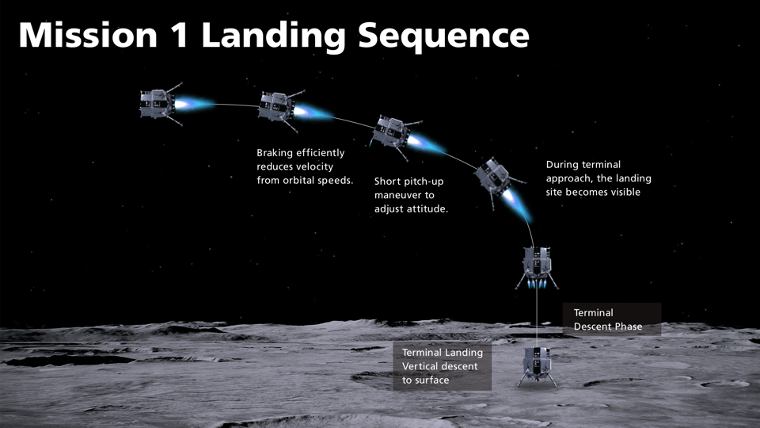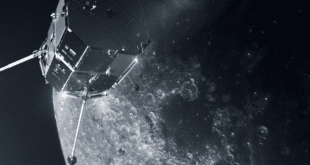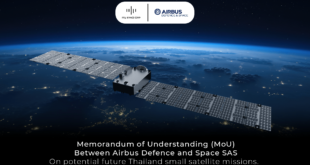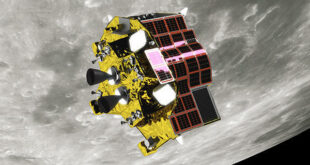
Ibadan, 17 April 2023. – ispace, inc., a global lunar exploration company, has announced that its HAKUTO-R Mission 1 Lunar Lander has completed all planned orbital control maneuvers, completing Success 8 of the Mission 1 Milestones.
The Mission 1 Lander performed the final orbital control maneuver in accordance with the mission operation plan, at 10:08 (JST), on April 13, 2023, under the direction of ispace engineers at the HAKUTO-R Mission Control Center in Nihonbashi, Tokyo. After a controlled burn from the lander’s main propulsion system lasting approximately 10 minutes, the maneuver was successfully completed.
On March 21, 2023, the lander completed successful insertion into lunar orbit, orbiting the Moon in an elliptical orbit with an altitude of about 100 km at the perigee (periapsis) and about 6,000 km at the apogee (apoapsis). After this, the lander performed two orbit control maneuvers. As a result, the lander has now reached a 100 km circular orbit around the Moon.
At approximately 15:40 on April 25, 2023 (UTC), the lander will begin the landing sequence from the 100 km altitude orbit. During the sequence, it will perform a braking burn, firing its main propulsion system to decelerate from orbit. Utilizing a series of pre-set commands, the lander will adjust its attitude and reduce velocity in order to make a soft landing on the lunar surface. The process will take approximately one hour.
ispace will announce Success 9, the next Mission 1 milestone, after it confirms a successful lunar landing. On the other hand, the Company will announce Success 10, the last of the Mission 1 milestones, after confirmation that steady telecommunications and power supply exist after landing on the Moon.





